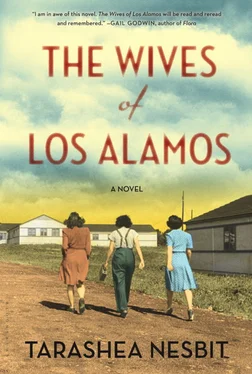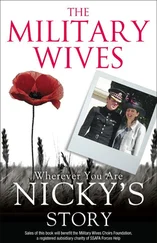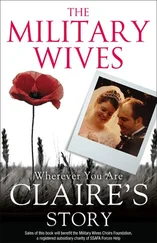SOMEONE WILL HEAR you. Keep quiet. They sat back down and stared at us. Somewhere the dry leaves were falling.
WE SAID WE had four children including our husbands.
THERE WAS A small body of water, a man-made pond, in the center of town, which our children used to ice skate on during the winter and swim in during the summer. They dug holes under the fences, stole wood from construction sites, and built forts on the other side. They climbed in and out of the barbed wire fence through a hole covered by a woodpile. We thought woodpiles were snake dens and we told them not to do it, but we knew they would, and we had our snake kits ready.
MUD, MUD EVERYWHERE in the rainy summers, in the melting snow of spring, and our children played like piglets. Soon they carried pocketknives they got by trading candy with their friends, and we were afraid but we knew we had to let them be children. Once we found out from our neighbor that on their way to school, as they cut through backyards, our young boys slashed the underwear hanging on the clotheslines, and we took their pocketknives away.
OUR BOBBIES PRETENDED to change flat tires, our Cheryls were the best skiers, our Michaels threw rocks at the garbagemen. They played Ring Around the Roses and held hands with other women’s children for the first time. They bobbed for apples; they made Valentines.
OUR CHILDREN WOULD be in class and hear a big boom and ask, What was that? Over time they grew accustomed to it and like most children were preoccupied instead with their friends, with the girl who won the spelling bee, with what they might eat for lunch, with what fort they might build after school.
THE FIRE CHIEF’S daughter was the most popular, our daughters told us. Our daughters just wanted to be left alone, wanted to read books, or wanted to be well liked, but they were foreign, they were not the fire chief’s daughter, they were outsiders because we did not go to church on Sundays.
WHEN OUR DAUGHTERS, the talkative ones, weren’t doing well at school we met their history teacher, our friend Louise, after class. What is she doing wrong?
She never puts her hand up in class .
THIS WAS SOMETHING we could manage. We had been that girl, or we could not understand being that girl. Either way, when we got home we marched into our daughters’ rooms. I don’t care if you know the answer or not, you put up your hand . And wouldn’t you know, their grades in history improved.
OUR CHILDREN ASKED us to fix their bikes and to replace their tires so they could ride to the stables and feed and exercise the horses. And once we did fix their tires they said they would rather walk. We told one another then, All boys should be buried at twelve and not dug up until they are eighteen . But we thought of the boys actually buried at eighteen, and we didn’t say it again.
OUR CHILDREN FOUND shotgun shells they thought were empty and one child banged them against the ground; they exploded, they tore through Cadillacs, they knocked our boys back, two boys could not hear for a week.
WE WERE AT our children’s piano lesson when Sarah came running in to say Patrick was in the pond but not moving. The pond our children ice-skated on, the pond our children swam in.
OVER THE MUD hill, in our galoshes, in our untied oxfords, we ran. Starla leading, Margaret losing her left shoe. Folded in a green wool blanket next to the pond, Ingrid was bundling him, shooing away anyone who came too close. She swayed and rocked his long body as if he were still an infant. Kissed his forehead, his cheeks. It was, as we knew it would be, too late.
WE WENT TO her. If there were a thing to say we would say it, but there was nothing. I’m sorry .
BUT WE COULD stand at the side of the pond with one leg ankle deep in mud and hold her until her sobbing momentarily stopped, until an MP or hospital orderly took Patrick away. Blissful-heart, breaking hours, frail body, fainting body, we could never change what time, too, can’t: your own child, gone. We stood and we tried to tell her with our standing: she would survive.
AT HOME, WE brought out the vacuum, though we had just cleaned the carpet that morning. Under the loud hum of the machine, where our neighbors could not hear us, we sobbed.
BECAUSE OUR HUSBANDS were hard to reach, and dinner was the only time we saw them, we planned lively tales to get their attention, which were usually dramatic retellings of the mundane activities of our days. Oscar got into the trash again, Maria had to be told twice to get the floor clean, Bobby threw a tantrum at the commissary. Occasionally our husbands had not heard the news, and we reported on war updates we got from the radio, or from the GIs.
OR PERHAPS WE let silence shade the evening, and we felt that we were a portrait on the wall, more invisible the longer it had been in its location, and we felt we were no longer new, no longer different, no longer eye catching. We raised our pitch; we made our tone pretty and light. It was no use. We wanted a night out with our husbands, we wanted to be anonymous for a few hours, we wanted to flirt. We missed brushing off the men in line at the deli counter. Crocuses pushed up through the hard clay, and we longed to be longed for.
SOME OF US did not want to acknowledge our longings, for what that might mean, for how we were weak to them. Others of us were more confident, were better fantasizers, could desire a piece of chocolate but could go without it—and so we announced, at dinner parties, in front of our husbands, Frank, my dear, I could eat you up .
AT HOME, WHEN we wanted a diversion, when we wanted sensory stimulation, when we wanted exercise, when we wanted social interaction—perhaps we went shopping. Because we were frequent browsers we were confident in what we liked and we were rarely talked into buying expensive and ugly things and therefore we did not feel any remorse. But for some of us, if we did buy anything, or if we checked our watches and noticed, to our surprise, three hours had gone by and we still needed to think about dinner, we did not feel elation, but a heaviness, a guilt for what we did with our time. Sometimes we returned home with items we did not previously plan to purchase—houndstooth slacks—and these sorry items stayed in our closet, first in the front and then to the back—with the tags on, until finally, accepting our bad purchase, we donated the neglected item to charity.
ON THE MESA, when we felt restless, sleepy, antsy, distressed, and bored we went to the commissary, which did not console us at all.
PEOPLE WERE TALKING; it was our job to spread a fantastical rumor to confuse any spies and nosy neighbors. In Santa Fe they could see our columns of smoke during the day and our lights at night. And on occasion the sleepy town was overtaken with women who had confident strides, who bought up the town’s supplies of purses, children’s shoes, and spare parts for washing machines.
SO THE DIRECTOR told us to go to Santa Fe and pretend we were tipsy. We were ordered to hide our wedding rings in our pocketbooks and lean into the ears of local men, to dance slowly with them until they wanted to hear what we had to share. We were instructed to say we wanted to tell them a secret. We asked in a voice we tried to make deeper, Do you ever wonder what we are doing up there? We were told to say we were building an electronic rocket ship. But these local men in cowboy boots were tipsy, too (we did more than pretend), and they wanted to tell us their secrets instead. They wanted to tell us their dreams for their future or what they had lost so far: I want to own a ranch. My ex-wife is good with the children. I didn’t mean to do it. I’m gonna get her back. And my kids. You’ll see.
Читать дальше












